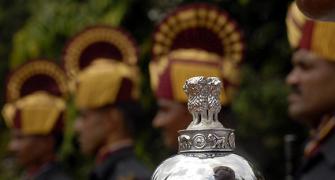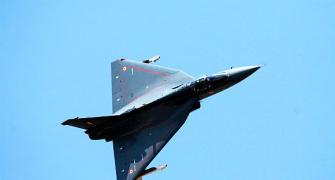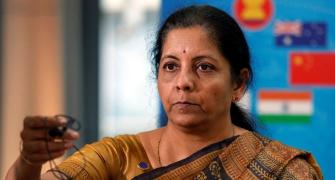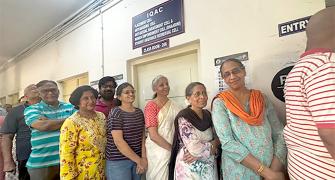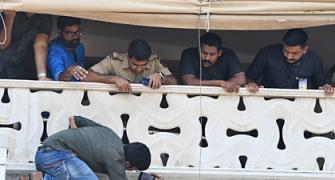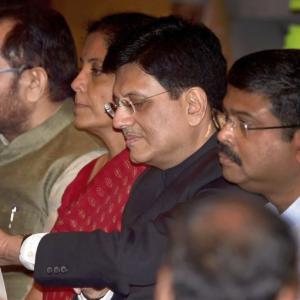'She must first change the Rules of Business 1961 that makes the defence secretary and not the defence minister responsible for the defence of the country!' advises Colonel Anil A Athale (retd).
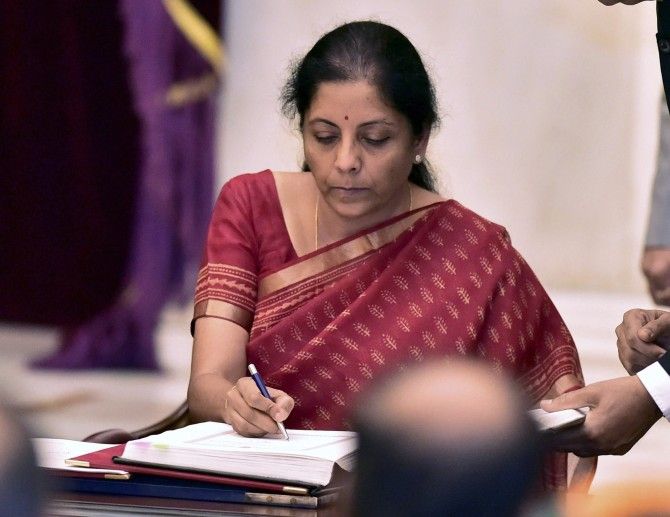
Congratulations to the new defence minister on breaking yet another glass ceiling by becoming the first full time woman defence minister.
Women entered the armed forces some time ago and it was only a matter of time that they crossed the final frontier, so to speak. But it would be unfair to dwell excessively on the gender of our new defence minister.
She has obviously proved her mettle as commerce minister and deservedly got this promotion.
Defence Minister Nirmala Sitharaman faces a daunting task.
With the exception of Manohar Parrikar's brief tenure, the defence ministry suffered from a ten year-long 'inertia' under the honest but 'status quoist defence minister A K Antony.
In fact, one needs to go even further into the past to understand that the defence sector as a whole has virtually stood still while the rest of the government machinery has undergone a sea change since the 1991 economic reforms.
The winds of change of introducing competition and entry of private players has toned the rest of the economy as well as public sector industry, but the State monopoly with all its attendant ills, continues to rule the roost in the defence industry.
As a former commerce minister, the first task before the new minister is to speed up the opening of the defence sector to competition from private players.
Here she will face opposition from the usual suspects on the Left as well as the powerful trade union lobbies under control of her own party (the Bharatiya Mazdoor Sangh).
Simultaneously with the creation of competitive environment in defence industry she will have to carry out drastic surgery in the DRDO (Defence Research and Development Organisation) Empire.
Centralisation of research is a bad idea and goes against the very grain of research activity. While the 'development' aspect could remain centralised under DDO (Defence Development Organisation), research activities must be separated and dovetailed with other research bodies like universities and IITs (Indian Institutes of Technology).
This revamping and restructuring of defence industry and research could then form the foundation for the 'Make in India' initiative.
It is a matter of shame as well as alarm that 70 years after Independence we remain critically dependent on the import of weapons for even essential items of defence needs.
The whole Nehruvian structure that still remains intact was created with the laudable objective of keeping the 'military industrial Complex' from developing vested interest and influence over policies of war and peace.
US President Dwight D Eisenhower had warned the US about this in his farewell speech. The leaders of the earlier era were influenced by the 'merchants of death' in the shape of international arms manufacturers who had no qualms in supplying weapons to both sides during World War I.
The deeds of companies like Krupps and Vickers Armstrong are well documented. But the failure of our State controlled defence industry and the sloth in DRDO put us at the mercy of the foreign military industrial complex.
The new minister will quickly learn how foreign suppliers twisted our arms and made windfall profits during a crisis like the Kargil border skirmish.
Reform of defence production and research is capable of adding new jobs, spur the economy and put our defence on sound footing so that we cannot be blackmailed during a crisis. It is indeed a win win situation.
This reform alone can boost the national GDP by 1 to 2 percent, ease our balance of payments and promote employment.
Lieutenant General D B Shekatkar (retd)'s report has suggested rationalisation of manpower and logistics. This indeed is a welcome step and must be implemented.
But mere rationalisation will not result in much gain unless basic structural reforms are carried out in higher direction of war and the ministry of defence.
Merger of the armed forces headquarters with the ministry will lead to huge savings in manpower plus smoothen decision making.
We are a parliamentary democracy like Britain. There is a need to follow the British model of integration since that suits our system of permanent secretaries and transient ministers.
But to begin the reform, the new defence minister must first change the Rules of Business 1961 that makes the defence secretary and not the defence minister responsible for the defence of the country!
In fact, the 1961 exercise (mainly by the ICS officers of the British era) was not an exception but a rule in the copycat systems that we inherited.
Do we remember the old days when the foreign exchange rules permitted only $8 for Indians travelling abroad? I always wondered why $8, and not $10 as would be logical. I found the answer to this mystery when the archives showed that it was the same limit that the British had put post World War II to conserve foreign exchange!
Even the number of guests permitted at 1960s weddings (under the Guest Control Order) was the same that the British had imposed in the 1940s.
Is it not time to take a fresh look at the British era legacy and use our own brains to write our own regulations?
Ms Sitharaman is lucky that she will have a competent set of professionals in the service chiefs to advise her. But she should be aware that the military always thinks of fighting the past war!
She will have to craft a higher defence organisation as part of her defence ministry that creates realistic scenarios and not a worst case basis for defence planning.
In this she would be well advised to form a Blue Ribbon Panel on American lines to take stock of 10 to 15 years of threat perceptions.
Obviously, all this is a tall order and may well take more than 5 years to fully implement.
One hopes for the sake of the country that Ms Sitharaman has a long stay at the ministry to implement all of this.
Best of luck to the first full time woman defence minister!
IMAGE: Nirmala Sitharaman signs the register after taking the oath as a Cabinet minister at Rashtrapati Bhavan in New Delhi, September 3, 2017. Photograph: Kamal Kishore/PTI Photo
Colonel Anil A Athale (retd) is a military historian.

